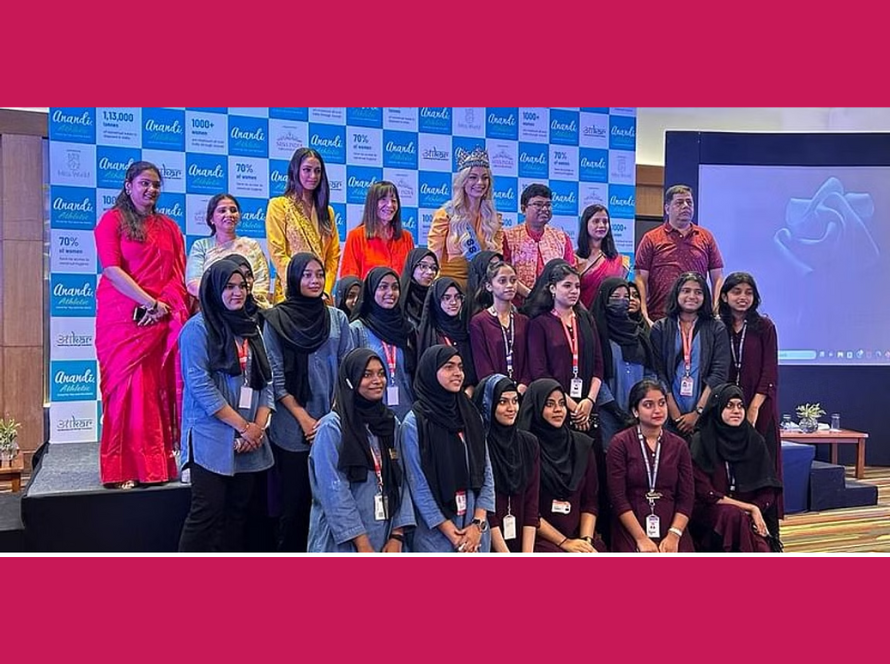Published on October 9, 2023: In a stirring address at a global conference on gender issues in agriculture, President Droupadi Murmu emphasized the critical but often unacknowledged role that women play in agri-food systems worldwide. She called for a transformative shift in perception, highlighting that women are “indispensable” in the journey from farm to plate and stressing the need to break free from discriminatory social norms and barriers.
President Droupadi Murmu Advocates for Recognizing Women’s Vital Role in Agri-Food Systems
President Murmu pointed out that a significant portion of women in the agriculture sector remains at the bottom of the hierarchy, denied opportunities to ascend and become decision-makers. The COVID-19 pandemic laid bare the profound connection between agri-food systems and societal inequality.
“Women sow, grow, harvest, process, and market the food. They are indispensable in making every grain reach from farm to plate. But still across the world, they are held back and stopped by discriminatory social norms, and barriers to knowledge, ownership, resources, and social networks,” President Murmu declared. President Droupadi Murmu Advocates for Recognizing Women’s Vital Role in Agri-Food Systems
In India, empowering women in agriculture is gaining momentum through legislative and governmental initiatives. Several success stories of women entrepreneurs emerging in this sector are testament to this positive change.
The conference, jointly organized by the Consortium of International Agricultural Research Centers (CGIAR) Gender Impact Platform and the Indian Council of Agricultural Research (ICAR), aims to address gender disparities in agriculture and promote inclusivity.
President Murmu stressed the urgency of “women-led development” to make agri-food systems more equitable. While agriculture remained resilient during the pandemic, the crisis highlighted the entrenched structural inequalities within agri-food systems. Women, who have been historically excluded from these systems, now need to be at the forefront of change. President Droupadi Murmu Advocates for Recognizing Women’s Vital Role in Agri-Food Systems
CGIAR Executive Managing Director Andrew Campbell highlighted the escalating gender gap in food security, emphasizing the need for tools and insights to enhance interactions with rural communities. According to CGIAR Gender Impact Platform Director Nicoline de Haan, closing the gender gap and achieving equality could take nearly 300 years at the current pace. She called for research and innovation to propel women to the center of food systems.
President Murmu’s call to recognize and empower women in agri-food systems resonates as a vital step towards a more just and resilient global food supply chain.
Statement by Madhav fashion
Madhav Fashion is proud to stand in solidarity with President Droupadi Murmu’s call to recognize and empower women in agri-food systems. We acknowledge the invaluable contribution of women in agriculture and the food industry. Their dedication and hard work are the backbone of our sustenance.
As the largest embroidery fabric manufacturer in Bharat, we understand the significance of inclusivity and gender equality. We are committed to supporting and empowering women not only in agriculture but in every sphere where they contribute their talent and expertise.
Our ethos at Madhav Fashion revolves around celebrating tradition, artistry, and quality, and we believe in extending these values to every aspect of society. We are dedicated to creating opportunities and a platform where women can thrive, lead, and make a significant impact.
President Murmu’s message resonates deeply with us, and we are inspired to continue our efforts in promoting gender equality and inclusiveness. Together, we can create a more just and equitable world where every individual’s contribution is recognized and celebrated.
Madhav Fashion stands as a symbol of not just fashion but also of social responsibility, and we are committed to weaving a future where everyone has an equal opportunity to shine.
FAQ
1. Why did President Droupadi Murmu emphasize women’s role in agri-food systems?
President Droupadi Murmu emphasized the vital role of women in agri-food systems because their contributions often go unrecognized. Women are involved in various stages of food production, from sowing to processing, and play a crucial role in ensuring food reaches our plates. Recognizing and empowering women in agriculture is essential for achieving a just and equitable food supply chain.
2. How has the COVID-19 pandemic highlighted gender disparities in agriculture?
The COVID-19 pandemic revealed a strong correlation between agri-food systems and societal inequality. Women, who are disproportionately affected by the pandemic, were often excluded from decision-making roles in agriculture. The crisis underscored the urgency of addressing gender disparities in the sector.
3. What is the significance of women’s empowerment in agriculture?
Women’s empowerment in agriculture is critical for achieving gender equality and improving food security. When women have access to resources, knowledge, and opportunities, they can contribute more effectively to agricultural production and decision-making processes.
4. How can women be empowered in the agriculture sector?
Empowering women in agriculture can be achieved through legislative and governmental interventions, providing access to technology, developing entrepreneurial skills, and creating an enabling policy environment.
5. What role does Madhav Fashion play in supporting women in agriculture?
Madhav Fashion is committed to promoting gender equality and inclusiveness. While we are primarily known as the largest embroidery fabric manufacturer in Bharat, we extend our support to initiatives that empower women in various sectors, including agriculture.
6. What is the CGIAR Gender Impact Platform, and how does it contribute to gender equality in agriculture?
The CGIAR Gender Impact Platform is dedicated to addressing gender disparities in agriculture. It works to identify gaps and promote gender equality within agri-food systems through research, innovation, and policy advocacy.
7. How can researchers and stakeholders contribute to gender equality in agriculture?
Researchers and stakeholders can contribute by developing tools and insights to enhance interactions with rural communities and by embracing research that places women at the center of food systems.
8. What challenges do women face in the agriculture sector globally?
Women in agriculture often face challenges such as limited access to resources, discriminatory social norms, and barriers to knowledge and ownership. These obstacles hinder their full participation and recognition in agri-food systems.
9. How can the agriculture sector be made more just and equitable for women?
To make the agriculture sector more just and equitable for women, there is a need for comprehensive reforms that include policy changes, access to resources, and opportunities for women’s leadership. Empowering women in agriculture benefits not only individuals but also contributes to global food security and economic growth.



